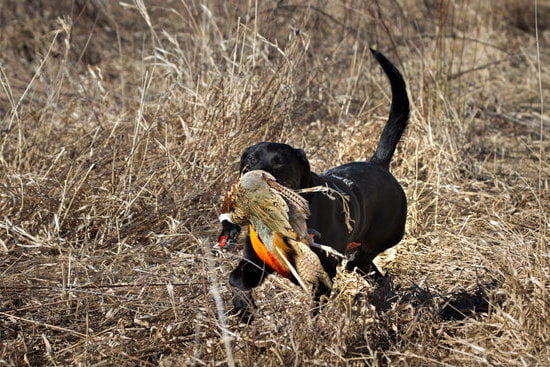Can you train a dog not to fart? Dog farting is a common issue that many pet owners face, but with the right techniques and strategies, it is possible to minimize and even control this gas-related problem.
Understanding the science behind why dogs fart can help in addressing and managing this issue effectively. From common causes of excessive dog farting to the role of diet, exercise, training techniques, and supplements, there are various ways to improve your furry friend’s digestive health and reduce those unpleasant odors.
Dog farting can be caused by a variety of factors such as diet, digestion issues, or even behavioral habits. By identifying the root cause of your dog’s excessive flatulence, you can then implement targeted solutions to address and minimize this problem. Whether it’s adjusting their diet, providing more opportunities for physical activity, or incorporating behavioral strategies into their routine, there are plenty of ways to tackle dog farting head-on.
In this article, we will explore the different aspects of dog farting, from understanding the importance of diet in controlling gas emissions to discussing training techniques and behavioral strategies that can help manage this issue effectively.
By learning how to train your dog not to fart through scientifically-backed methods and real-life success stories, you’ll be equipped with the knowledge and tools needed to improve your canine companion’s digestive health and reduce those unwanted odors in your home.
Common Causes of Excessive Dog Farting
Dogs are known for their sometimes less-than-pleasant personal habits, and farting is no exception. But can you train a dog not to fart excessively? The answer lies in understanding the common causes behind excessive dog farting and implementing techniques to address them effectively.
One of the primary reasons for dogs farting more than usual is their diet. Just like in humans, certain foods can lead to gas build-up in dogs, resulting in increased flatulence.
Ingredients like beans, dairy products, and some grains like wheat can be difficult for dogs to digest properly, leading to gas production. It is essential to pay attention to what you are feeding your furry friend and consider switching to a high-quality, easily digestible diet if excessive gas becomes a problem.
In addition to dietary considerations, other factors such as swallowing air while eating too quickly or underlying digestive issues can also contribute to dog farting. Training techniques that focus on modifying your dog’s eating behavior, ensuring they eat slowly and chew their food thoroughly, can help reduce the intake of excess air during meals. Additionally, regular veterinary check-ups can rule out any potential health issues that may be causing or exacerbating your dog’s flatulence.
| Common Causes of Excessive Dog Farting | Understanding the Importance of Diet in Controlling Dog Farting |
|---|---|
| Dietary factors such as specific ingredients causing gas build-up | Paying attention to the quality and digestibility of your dog’s food |
| Eating behavior like eating too quickly leading to ingesting air | Switching to a high-quality diet with easily digestible ingredients |
| Possible underlying digestive issues contributing to flatulence | Considering consulting with a vet for dietary recommendations tailored to your dog’s needs |
Understanding the Importance of Diet in Controlling Dog Farting
Diet plays a crucial role in controlling dog farting. Just like in humans, the food that dogs consume can directly impact their digestive system and gas production. Certain ingredients in dog food can lead to increased flatulence, such as beans, dairy products, and high-fiber foods.
Moreover, some dogs may have sensitivity or allergies to specific ingredients, causing gastrointestinal issues and excessive gas. To address these concerns and reduce farting episodes, pet owners must pay close attention to their dog’s diet.
Switching to a high-quality dog food that is easily digestible and free of common irritants can significantly help in controlling dog farting. Look for options with real meat as the primary ingredient and avoid foods with artificial additives or fillers.
Additionally, consider feeding smaller meals throughout the day instead of one large meal to aid digestion and reduce bloating, which can contribute to increased flatulence. It is essential to consult with a veterinarian or canine nutritionist to determine the best diet plan for your dog’s specific needs.
In addition to selecting appropriate dog food, monitoring treat intake is also essential in managing dog farting. Treats that are high in fat or sugars can disrupt digestion and lead to excessive gas production. Opt for healthy alternatives like fruits, vegetables, or specially designed low-fart treats. By carefully managing your dog’s diet, you can you train a dog not to fart effectively control their flatulence levels and improve their overall digestive health.
| Dietary Tips | Impact |
|---|---|
| Avoid foods with beans or dairy | Reduced gas production |
| Choose high-quality easily digestible food | Better digestion and less bloating |
| Monitor treat intake | Prevention of digestive disruptions |
Training Techniques to Minimize Dog Farting
Positive Reinforcement Training
One key aspect of training a dog not to fart excessively is through positive reinforcement. This method involves rewarding your dog for good behavior, such as not farting in inappropriate places or reducing the frequency of flatulence. By using treats, toys, or praise, you can reinforce desirable behaviors and encourage your dog to exhibit them more often. Consistency is essential in this training technique to effectively teach your dog to control its gas.
Establishing a Routine
Creating a consistent daily routine for your dog can also help in minimizing excessive farting. Regular feeding times, exercise schedules, and potty breaks can contribute to better digestion and overall health, ultimately reducing the likelihood of excess gas. Dogs thrive on routine and structure, so establishing a predictable schedule can aid in managing their gastrointestinal issues and farting episodes.
Seeking Professional Help
If your efforts to train your dog not to fart have been unsuccessful despite implementing various techniques, it may be beneficial to seek professional guidance from a veterinarian or animal behaviorist. These experts can provide additional insight into the underlying causes of your dog’s excessive flatulence and recommend specialized training methods or dietary adjustments. Consulting with professionals can offer valuable support in addressing the issue effectively and improving your furry friend’s quality of life.
Tips for Incorporating Exercise to Reduce Farting in Dogs
Benefits of Exercise for Reducing Dog Farting
Exercise plays a crucial role in not only keeping your dog physically fit but also in managing and reducing farting. Regular physical activity can help improve digestion, stimulate bowel movements, and decrease the likelihood of gas build-up in your dog’s digestive system. By incorporating exercise into your dog’s daily routine, you
Moreover, exercise helps relieve stress and anxiety in dogs, which are known factors that contribute to excessive gas production. A happy and relaxed dog is less likely to experience digestive issues that result in frequent farting. Whether it’s a brisk walk, a game of fetch, or interactive play sessions, ensuring your dog gets enough exercise can significantly impact their overall digestive health and reduce farting episodes.
Choosing the Right Type of Exercise for Your Dog
When selecting activities to incorporate into your dog’s exercise routine to reduce farting, consider their breed, age, size, and energy levels. For example, high-energy breeds may benefit from more vigorous activities such as running or agility training to keep them mentally stimulated and physically active. On the other hand, smaller or senior dogs may prefer low-impact exercises like gentle walks or swimming.
Incorporating a variety of exercises into your dog’s routine can prevent boredom and keep them engaged. Additionally, interactive toys or puzzle games that encourage physical activity can provide mental stimulation while burning off excess energy. By tailoring the type and intensity of exercise to suit your dog’s individual needs, you
Behavioral Strategies for Managing Dog Farting
When it comes to managing and reducing dog farting, behavioral strategies can play a crucial role in addressing the issue. By implementing the right techniques and training methods, pet owners can effectively minimize their furry companion’s flatulence problem. Here are some helpful behavioral strategies that can be incorporated into your routine:
- Establish a regular feeding schedule: Consistency in mealtimes can help regulate your dog’s digestive system and reduce the likelihood of excessive gas build-up.
- Monitor food intake: Keep track of what your dog is eating and how they react to certain ingredients. Some dogs may have sensitivities or allergies to specific foods that can lead to increased flatulence.
- Encourage slow eating habits: Rapidly consuming food or gulping down water can cause dogs to swallow excess air, which can contribute to farting. Use puzzle feeders or slow feed bowls to promote a slower eating pace.
In addition to these strategies, it is essential to provide a comfortable and stress-free environment for your dog. Just like humans, dogs can experience digestive issues due to anxiety or tension. Ensuring that your furry friend feels safe and secure at home can help reduce stress-related farting episodes.
Remember that consistency and patience are key when implementing behavioral strategies to manage dog farting. It may take some time for your pet to adjust to new routines or training methods, but with dedication and positive reinforcement, you can train a dog not to fart excessively over time.
The Role of Supplements in Improving Digestion and Reducing Farting
Dog farting is a common issue that many pet owners face, but it can be managed through various strategies. One important aspect to consider in improving digestion and reducing farting in dogs is the role of supplements. By incorporating the right supplements into your dog’s diet, you can help support their digestive system and minimize gas production. Here are some key supplements that can aid in improving digestion and reducing farting in dogs:
- Probiotics: Probiotic supplements contain beneficial bacteria that help maintain a healthy balance in the gut microbiome. By promoting good gut health, probiotics can aid in better digestion and reduce excessive gas in dogs.
- Digestive Enzymes: Digestive enzyme supplements can assist in breaking down food more efficiently, which can lead to better nutrient absorption and less fermentation in the gut. This can ultimately result in decreased gas production.
- Fiber Supplements: Fiber plays a crucial role in regulating bowel movements and promoting healthy digestion. By adding fiber supplements like pumpkin or psyllium husk to your dog’s diet, you can help prevent constipation and reduce flatulence.
When considering supplements for your dog, it is essential to consult with your veterinarian to determine the most suitable options based on your dog’s individual needs. Additionally, it is important to follow recommended dosages and guidelines to ensure the safety and effectiveness of the supplements.
Incorporating these supplements into your dog’s daily routine alongside a balanced diet and proper hydration can help improve their overall digestive health and reduce farting episodes. Remember that consistency is key when introducing new supplements, so be patient as you observe any changes in your dog’s digestion and farting frequency. With the right approach, you can train a dog not to fart by addressing underlying digestive issues with the help of appropriate supplements.
Case Studies
Training a dog not to fart may sound like a challenging task, but with the right approach and consistency, it is possible to see success. Let’s take a look at some real-life examples of pet owners who have effectively trained their dogs to reduce or eliminate excessive flatulence.
One common success story involves Mary and her Labrador Retriever, Max. Max used to have frequent episodes of gas that would clear out a room in seconds. After consulting with a veterinarian, Mary decided to make some changes to Max’s diet by switching to a high-quality, easily digestible dog food.
She also incorporated probiotics into his meals to improve his gut health. Through positive reinforcement training techniques such as rewarding good behavior and ignoring unwanted behaviors, Max’s farting episodes significantly decreased over time.
Another example is John and his French Bulldog, Bella. Bella had a sensitive stomach and would often release stinky gas after eating certain foods. John worked closely with a dog trainer to implement behavioral strategies such as teaching Bella to wait calmly before meal times and avoid gulping down food quickly. By introducing regular exercise routines like daily walks and play sessions, Bella’s digestion improved, leading to less frequent incidents of flatulence.
Overall, these case studies show that with dedication, patience, and the right combination of diet, training techniques, exercise, and supplements, pet owners can successfully train their dogs not to fart excessively. It is essential to work closely with a veterinarian or professional dog trainer to tailor a plan that suits the individual needs of each dog for optimum results in managing gas issues.
Conclusion
In conclusion, the question “Can you train a dog not to fart?” may seem like a daunting challenge, but with the right approach and consistency, it is possible to minimize your furry friend’s flatulence. By understanding the science behind dog farting and identifying common causes such as diet, exercise, and behavior, pet owners can take proactive steps in reducing excessive gas in their dogs.
Training techniques such as positive reinforcement can be effective in teaching dogs to exhibit desirable behaviors and reduce unwanted gas. Incorporating regular exercise not only benefits your dog’s overall health but can also help in alleviating gastrointestinal issues that may lead to farting. Additionally, behavioral strategies like creating a calm environment during meal times can contribute to better digestion and less gas production.
Moreover, the role of supplements in improving digestion and reducing farting should not be overlooked. Consulting with a veterinarian about appropriate supplements for your dog’s specific needs can be beneficial in managing gastrointestinal issues. By combining proper training techniques, diet management, exercise, and supplements, pet owners
Frequently Asked Questions
Why Does My Dog Fart All the Time?
Dogs fart for a variety of reasons, including diet, swallowing air while eating or drinking, food allergies, gastrointestinal issues, or simply eating too quickly. It can also be related to certain health conditions.
How Do You Treat a Gassy Dog?
To treat a gassy dog, consider adjusting their diet by ensuring they are eating high-quality dog food with easily digestible ingredients. Slow down their eating pace by using puzzle feeders or getting them small meals throughout the day. Regular exercise can also help reduce gas.
What Are the Gassiest Dogs?
Some breeds are more prone to being gassy due to their anatomy and digestive systems. Breeds like Bulldogs, Pugs, Boxers, and other brachycephalic breeds tend to gulp air while eating due to their shorter nasal passages. Additionally, dogs with sensitive stomachs or those prone to allergies may experience more frequent gas compared to others.

Welcome to the blog! I am a professional dog trainer and have been working with dogs for many years. In this blog, I will be discussing various topics related to dog training, including tips, tricks, and advice. I hope you find this information helpful and informative. Thanks for reading!





